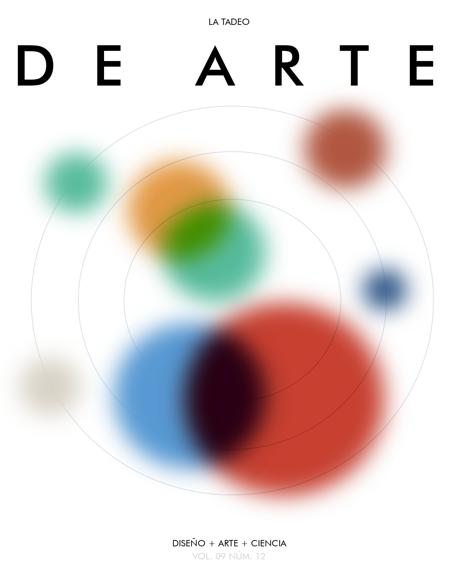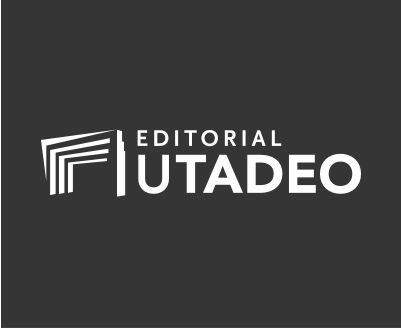
Esta obra está bajo una licencia internacional Creative Commons Atribución-NoComercial-CompartirIgual 4.0.
Esta obra está bajo una licencia internacional Creative Commons Atribución-NoComercial-CompartirIgual 4.0.
Resumen
This paper reflects on making visual art works with everyday waste material found in the garbage heaps of the postmodern cyborg Anthropocene. My reflection, shaped by earlier material explorations of creating assemblages from discarded or decaying materials, focuses mainly on the challenge of making a semi-permanent art assemblage titled Amazonia, Goddess of Waste. The methodologies I followed for this reflection are autoethnography and interdisciplinary art-international law research creation. My outlook has been influenced by art movements such as new materialism, postmodernism, and posthumanism. The meditations that I included in this document – related to international law’s failure to protect human rights and the environment and the opportunities and challenges of artmaking in times of environmental crisis – were produced as I struggled with the materiality of Amazonia’s paradoxical fragility.
Citas
Barad, Karen Michelle. Meeting the Universe Halfway: Quantum Physics and the Entanglement of Matter and Meaning. Durham N.C.: Duke University Press, 2007. https://doi.org/10.2307/j.ctv12101zq
Barad, Karan. “Troubling time/s, undoing the future.” (2016) https://www.youtube.com/watch?v=dBnOJioYNHU&ab_channel=FacultyofArts%2CAarhusUniversitet.
Barad, Karan. “After the end of the world: Entangled nuclear colonialisms, matters of force, and the material force of justice.” Theory & event 22, no. 3 (2019): 524–550.
Bennett, Jane, Vibrant Matter – A Political Ecology of Things. Durham and London: Duke University Press, (2010). https://doi.org/10.2307/j.ctv111jh6w
Braidotti, Rosi. “A Theoretical Framework for the Critical Posthumanities.” Theory, Culture & Society 36, no. 6 (2019): 31–61. https://doi.org/10.1177/0263276418771486.
Butler, Judith. Gender Trouble. New York: Routledge, 1990.
Canadian Geographic, “From plastic trash to treasured art: Five artists invite us to rethink our relationship with plastic,” June 29, 2020, https://canadiangeographic.ca/articles/from-plastic-trash-to-treasured-art-five-artists-invite-us-to-rethink-our-relationship-with-plastic/.
Carson, Rachel, Edward O Wilson, Linda J Lear, Lois Darling, and Louis Darling. Silent Spring. First Mariner books ed. Boston: Mariner Book, Houghton Mifflin Company, 2002.
Causeartist, “13 Incredible Artivists Using Recycled Materials in Their Art” Arts, Culture & Entertainment, https://causeartist.com/incredible-recycled-art-materials-creations/#:~:text=HA%20Schult%20is%20a%20German,a%20building%20made%20of%20garbage.
Chapman, Owen, and Kim Sawchuk. “Research-creation: Intervention, analysis and ‘family resemblances’,” Special Issue on Media Arts Revisited, Canadian Journal of Communication, 37, no. 1 (2012): 5-26. https://doi.org/10.22230/cjc.2012v37n1a2489
Charlesworth, Hilary, and Emma Larking, “International Law: A Discipline of Crisis,” The Modern Law Review 65, no. 3 (2002): 377–392. https://doi.org/10.1111/1468-2230.00385
Cixous, Hélène. “The Laugh of the Medusa.” Translated by K. Cohen and P. Cohen, Signs 1, no. 4 (Summer, 1976): 875-893 The University of Chicago Press, Stable URL: http://www.jstor.org/stable/3173239, 887. https://doi.org/10.1086/493306
Cooke, Lynne. “Essay by Lynne Cooke with statements by Joseph Beuys”, 7000 Oak, http://web.mit.edu/allanmc/www/cookebeuys.pdf.
Corten, Olivier, and Pierre Klein, with drawings by Gérard Bedoret. Une Histoire Du Droit International: De Salamanque À Guantanamo. Luçon: Futuropolis, 2022.
Deleuze, Gilles and Félix Guattari. A Thousand Plateaus: Capitalism and Schizophrenia. Translated by Brian Massumi. Minneapolis: University of Minnesota Press, 1987.
Derrida, Jacques. Genesis, Geneologies, Genres and Genius. Translated by Beverley Bie Brahic. Edinburgh: Edinburgh University Press, 2006.
Dolphijn, Rick and Iris van der Tuin. “Matter feels, converses, suffers, desires, yearns and remembers,” Interview with Karen Barad, in New Materialism: Interviews & Cartographies, Open Humanities Press (2012): http://dx.doi.org/10.3998/ohp.11515701.0001.001.
Ellis, Carolyn and Arthur P. Bochner. “Autoethnography, personal narrative, reflexivity: research as subject.” In Handbook of Qualitative Research, second edition, edited by Norman K. Denzin and Yvonna S. Lincoln, 733-768. Thousand Oaks: Sage Publications, 2000.
Geerts, Evelien, and Iris van der Tuin. “The Feminist Futures of Reading Diffractively: How Barad's Methodology Replaces Conflict-based Readings of Beauvoir and Irigaray.” Rhizomes cultural studies in emerging knowledge, no. 30 (2016): https://doi.org/10.20415/rhiz/030.e02.
Graham, Martha. “I am a dancer.” In The Routledge Dance Studies Reader, edited by Jens Richard Giersdorf and Yutian Wong, 120-125. London and New York: Routledge, 2019, 3d edition. https://doi.org/10.4324/9781315109695-11
Grear, Anna, “Deconstructing Anthropos: A Critical Legal Reflection on ‘Anthropocentric’ Law and Anthropocene,” Humanity (20 May 2015): 225-249, Springer Science+Business Media Dordrecht, Published online.
Haraway, Donna. “A Cyborg Manifesto: Science, Technology, and Socialist-Feminism in the Late Twentieth Century.” In Simians, Cyborgs, and Women, 171–204. Routledge, 1990.
Keeling, Diane Marie and Marguerite Nguyen Lehman “Posthumanism.” Oxford University Press 2018 https://doi.org/10.1093/acrefore/9780190228613.013.627.
Manning, Erin. “Against Method.” in Vannini, Phillip. Non-Representational Methodologies: Re-Envisioning Research. First edition. New York: Routledge, 2015. https://doi.org/10.4324/9781315883540.
McCall, Michal M.. “Performance Ethnography: A Brief History and Some Advice.” In Handbook of Qualitative Research, second edition, edited by Norman K. Denzin and Yvonna S. Lincoln, 421-433. Thousand Oaks: Sage Publications, 2000.
Minh-Ha, Trinh T.. Woman, native, other: Writing postcoloniality and feminism. Bloomington: Indiana University Press, 1989.
Noury, Cynthia, and Louis-Claude Paquin. “(Re)Visiting Our Previous Contributions for Research-Creation [as Practice] — A Performative and Polyvocal Writing Project,” Prepublication Version (Fall 2020): 45.
Nussbaum, Martha C.. Cosmopolitan tradition: a noble but flawed ideal. Cambridge, Massachusetts: The Belknap Press of Harvard University Press, 2019. https://doi.org/10.4159/9780674242975
Rose, Gillian. Feminism & Geography: The Limits of Geographical Knowledge. Cambridge: Polity Press, 1993.
Simpson, Gerry. The Sentimental Life of International Law: Literature, Language, and Longing in World Politics. Oxford: Oxford University Press, 2022. https://doi.org/10.1093/oso/9780192849793.001.0001
Sullivan, Graeme. Art practice research: Inquiry in the visual arts. Thousand Oaks: Sage Publications, 2004.
Vaughan, Kathryn. “Pieced together: Collage as an artist’s method for interdisciplinary research.” International Journal of Qualitative Methods, 4, no. 1 (2005): 27–52, https://doi.org/10.1177/160940690500400103
Wayland Barber, Elizabeth. Women’s Work: The First 20,000 Years: Women, Cloth, and Society in Early Times. First edition. New York: Norton, 1994. http://vikmuniz.net/news/muntref-vik-muniz https://www.haschult.de/picture-boxes#content
Descargas
Datos de publicación
Perfil evaluadores/as N/D
Declaraciones de autoría
- Sociedad académica
- Universidad de Bogotá Jorge Tadeo Lozano
- Editorial
- Universidad de Bogotá Jorge Tadeo Lozano

 PDF (English)
PDF (English)
 FLIP
FLIP













